Search
Search Results
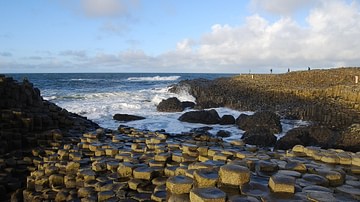
Image
Giant's Causeway, County Antrim, Northern Ireland
Giant's Causeway, County Antrim, Northern Ireland. According to legend, the basalt columns were erected by the great hero and giant Finn MacCool across the North Channel between Ireland and Scotland so he could meet a Scottish giant in single...
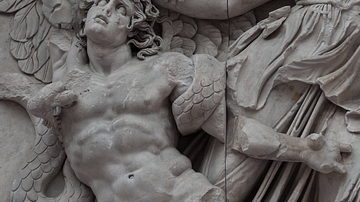
Image
Alkyoneus the Giant Killed by Athena
Detail from the Pergamon Altar's frieze (The frieze depicts the Gigantomachy); built in 2nd century BCE; Today in the Pergamon Museum in Berlin. The detail is part of a scene where Athena kills the giant by separating him from the Earth.
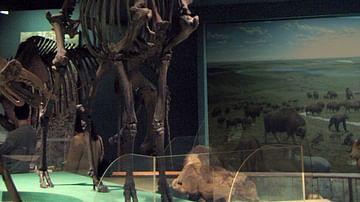
Image
Megaloceros (Giant Elk) Skeleton
Megaloceros giganteus (generally known as Irish- or Giant Elk) skeleton on display at the National Museum of Natural History, Washington, D.C. Megaloceros is an extinct genus of deer that lived from the Late Pliocene to the Late Pleistocene...
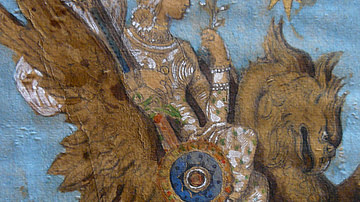
Definition
Chitrali Mythology
Chitrali mythology developed in the region of Chitral, the tallest portions of the Hindu Kush mountains, where the Chitrali people, at the juncture of South, Central, West, and East Asia, were exposed to many external cultural influences...
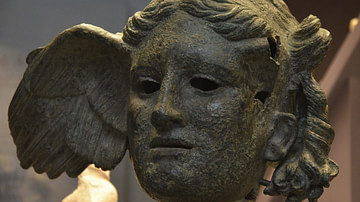
Definition
Mythology
Myths are a part of every culture in the world and are used to explain natural phenomena, where a people came from and how their civilization developed, and why things happen as they do. At their most basic level, myths comfort by giving...
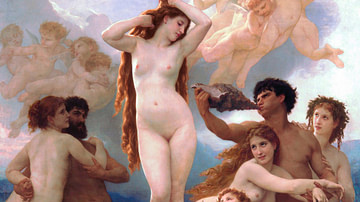
Definition
Greek Mythology
Greek mythology was used as a means to explain the environment in which humankind lived, the natural phenomena they witnessed and the passing of time through the days, months, and seasons. Greek myths were also intricately connected to religion...
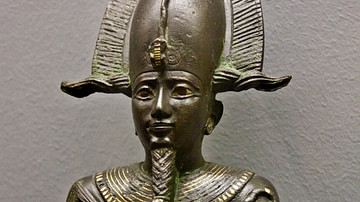
Definition
Ancient Egyptian Mythology
Egyptian mythology was the belief structure and underlying form of ancient Egyptian culture from at least c. 4000 BCE (as evidenced by burial practices and tomb paintings) to 30 BCE with the death of Cleopatra VII, the last ruler of the Ptolemaic...
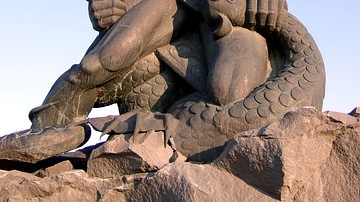
Definition
Armenian Mythology
The mythology of ancient Armenia is a rich blend of indigenous traditions with imported ideas from neighbouring cultures and migrating peoples added over the centuries. The legends and stories helped to explain natural phenomena, provide...
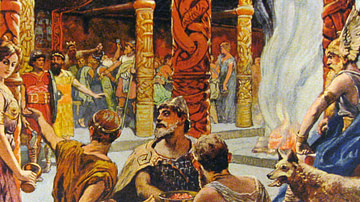
Definition
Norse Mythology
Norse mythology refers to the Scandinavian mythological framework that was upheld during and around the time of the Viking Age (c. 790- c. 1100 CE). Complete with a creation myth that has the first gods slaying a giant and turning his body...
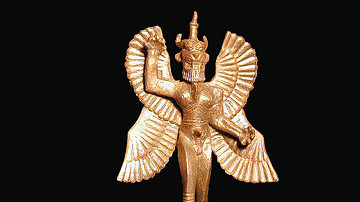
Article
Twelve Menacing & Protective Mythological Figures
The term mythology comes from the Greek words mythos (“story of the people”) and logos (“word”) and so is defined as the spoken (later written) story of a culture. Modern scholars have divided myths into different types which serve many different...